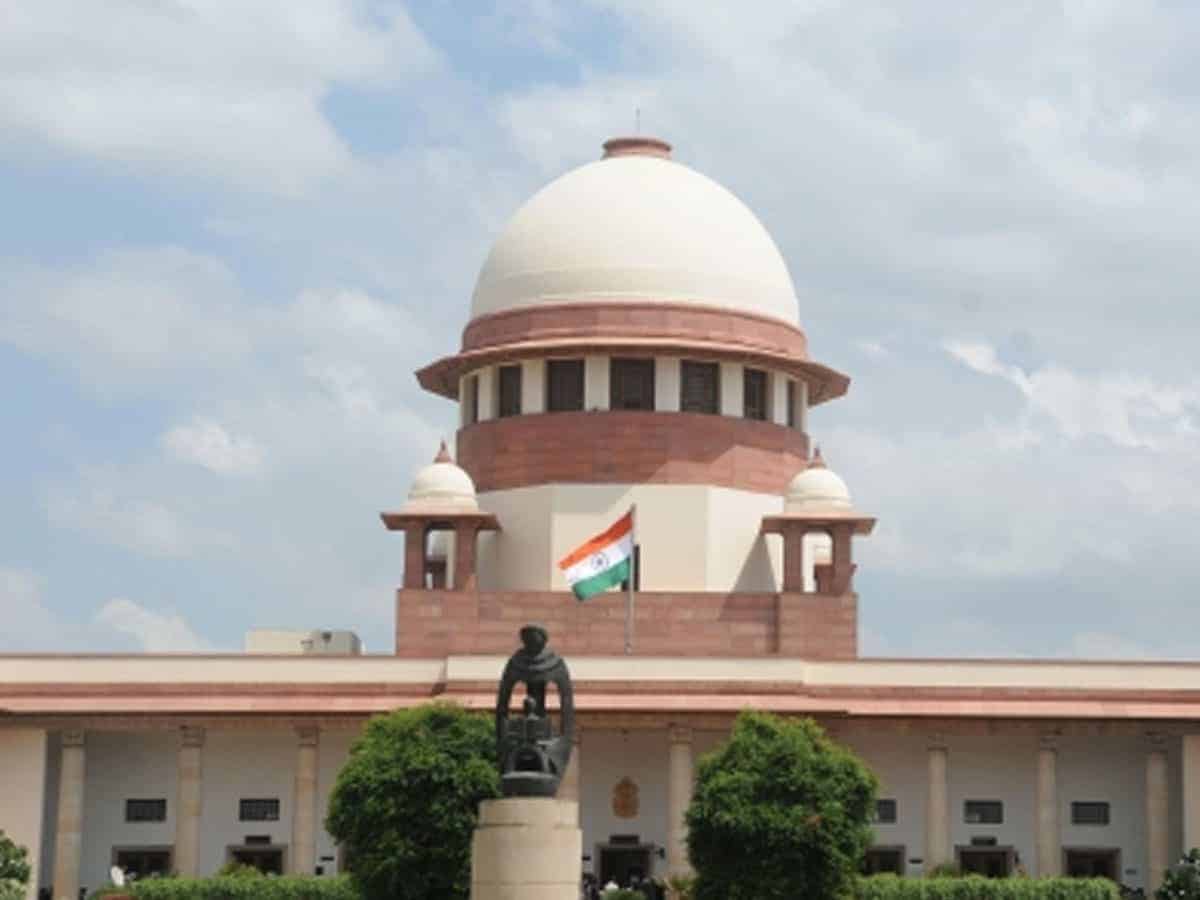
New Delhi: The Supreme Court is scheduled to pronounce on Tuesday its verdict on whether restrictions can be imposed on a public functionary’s right to freedom of speech and expression.
A five-judge Constitution bench headed by Justice S A Nazeer, who is set to retire on January 4, is likely to deliver the verdict.
The bench also comprises Justices B R Gavai, A S Bopanna, V Ramasubramanian and B V Nagarathna.
According to Tuesday’s cause list of the top court, there will be two separate judgements in the matter which will be pronounced by Justice Ramasubramanian and Justice Nagarathna.
The top court, which reserved its verdict on November 15, had said people holding public offices should exercise self-restraint and not blabber things that are disparaging or insulting to other countrymen.
The apex court had said this approach is part of our constitutional culture and there is no need for it to formulate a code of conduct for public functionaries.
The court had noted that irrespective of what Article 19(2) may say, there is a constitutional culture in the country where there is an inherent limitation or a restriction on what people holding responsible positions say.
Article 19(2) relates to the powers of the State to make laws imposing reasonable restrictions on the exercise of the right to freedom of speech and expression in the interest of sovereignty and integrity of the country, public order, decency, morality etc.
“It is inherent and there is no need for this court to give a code of conduct on that. Any person holding a public office or is public servant, there is an unwritten rule and it is part of constitutional culture that they impose a self restriction and not blabber things which are very disparaging or insulting to our other countrymen.
“There is something like a constitutional restriction or limitation inherent in such persons. This must be inculcated in our political society and our civic life,” Justice Nagarathna, who was part of the five-judge bench, had observed orally.
A three-judge bench had on October 5, 2017 referred to the the Constitution bench various issues for adjudication, including whether a public functionary or a minister can claim freedom of speech while expressing views on sensitive matters.
The need for an authoritative pronouncement on the issue arose as there were arguments that a minister cannot take a personal view and his statements have to be in sync with government policy.
The case stemmed from a statement made by then Uttar Pradesh minister Azam Khan about the Bulandshahr gang-rape case victims.
The court was hearing a plea filed by a man whose wife and daughter were allegedly gang-raped in July, 2016 on a highway near Bulandshahr seeking transfer of the case to Delhi and lodging of an FIR against Khan for his controversial statement that the gang-rape case was a “political conspiracy”.
